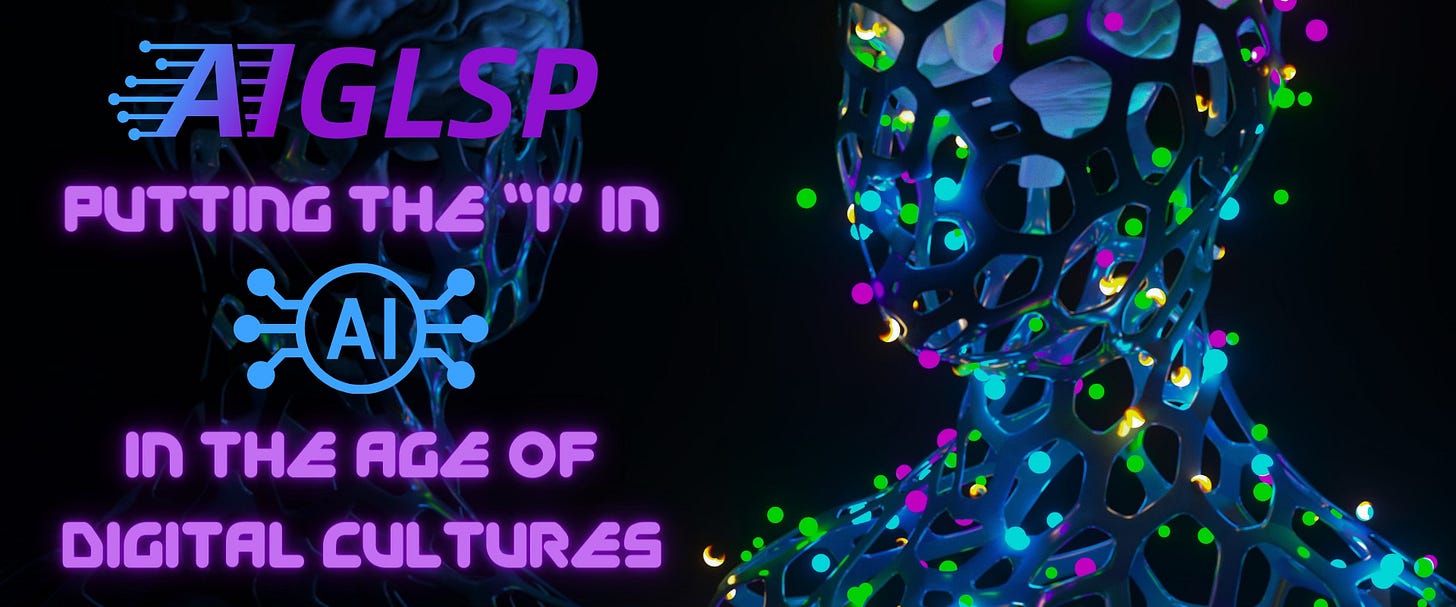AI and the Liberal Arts: Hopkins MLA Scholars Lead the Conversation at AGSLP 2024
Exploring AI’s Role in Education, Ethics, and Culture
The 2024 Association of Graduate Liberal Studies Programs (AGSLP) conference, happening next week, will feature leading scholars from the Hopkins MLA discussing the transformative impact of artificial intelligence (AI) on the liberal arts. Presenters will discuss topics ranging from the integration of AI in education to its ethical implications on privacy and cultural preservation. With contributions from Dr. Taylor Hahn, Dr. Laura DeSisto, Joshua Chambers, Carlos Littles, Bevin Carnes, Thomas Finser, and J. Gordon Mitchell, these discussions will highlight the essential role of the humanities in shaping the future of AI.
Next week, the 2024 Association of Graduate Liberal Studies Programs (AGSLP) Conference will bring together scholars from Johns Hopkins University, among others, to explore the profound impact of artificial intelligence (AI) on the liberal arts. This event will feature presentations from several MLA students and alumni and our Program Director, Dr. Laura DeSisto.
MLA student Joshua Chambers will share his insights on the issue of digital privacy in his presentation, Know Your Enemy: Digital Privacy, John Boyd, and Artificial Intelligence. Chambers, drawing from his military experience, will offer a critical examination of how AI technologies are reshaping notions of privacy and defense. His talk will discuss the ethical implications of AI in military strategy and decision-making, providing an interesting analysis of privacy concerns in the digital age.
In another presentation, Carlos Littles, MLA Alumni, will tackle the complex relationship between AI and cultural preservation in Ethical Dilemmas in AI: Safeguarding Indigenous Epistemologies and Cultural Survival. Littles’ research focuses on how AI technologies can either threaten or safeguard Indigenous knowledge systems. His presentation will call for more ethical approaches to AI development, particularly in its role in cultural preservation and the protection of marginalized communities' narratives.
MLA Alumna Bevin Carnes will offer a historical perspective in her presentation, Was Isaac Newton a Scientist? Assessing the Humanities as Essential to Newton's Natural Philosophy. Carnes will explore how AI is challenging contemporary notions of scientific inquiry, drawing parallels to the interdisciplinary nature of Isaac Newton's work. Her presentation will argue that, much like Newton’s blend of science and philosophy, the humanities are essential to understanding the implications of AI in modern knowledge production.
Thomas Finser, another MLA student, will engage in the exploration of AI's role in economic and societal disruptions with his presentation, GameStop 2021: Gateway to the Apocalypse. Finser’s analysis of the GameStop stock surge will highlight how AI technologies, including algorithmic trading and digital platforms, are influencing public behavior and markets. His presentation will contribute to broader discussions on the socio-economic impact of AI, providing a commentary on the unpredictability of AI-driven phenomena.
Additionally, J. Gordon Mitchell, a graduate of the Hopkins MLA, will discuss the role of AI in educational settings. His presentation, AI in the Classroom: Managing Technological Advancements to Improve Academic Outcomes, will explore how AI can be effectively implemented to enhance teaching and learning, both in civilian and military classrooms. Mitchell’s work emphasizes the need for educators to adapt to AI’s growing presence in education while also considering the ethical responsibilities that come with this shift.
One of the key contributions to the conference will come from Dr. Taylor Hahn, Program Director of the JHU Communication Program and Dr. Laura DeSisto, Director of the MLA Program, who will deliver their co-authored presentation, The World in our Hands: Pragmatic Approaches to an AI-inclusive Liberal Arts Education. Their work will address the growing need to integrate AI into liberal arts education, offering practical strategies for educators to incorporate AI tools into their curricula. By exploring how AI can be used to foster critical thinking and engagement in the humanities, Taylor and Laura will contribute to a broader conversation on the evolving role of technology in education.
As the conference approaches, the contributions from MLA faculty, students and alumni promise to be a significant part of the scholarly conversations that will shape the future of AI in the liberal arts. Their presentations reflect a broad range of perspectives, from educational innovation to ethical dilemmas and cultural preservation, ensuring that this year’s AGSLP conference will be at the forefront of addressing AI's transformative role in society.




